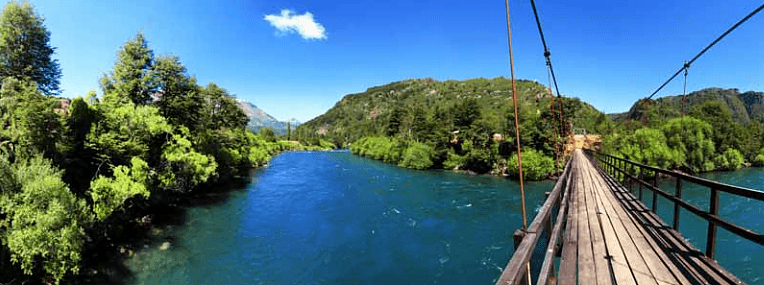For a Patagonia River, a Victory of Biblical Proportions
By: Waterkeeper Alliance

It was the latest advance in a protracted battle to save the Futaleufú River in Chilean Patagonia, a battle that Futaleufú Riverkeeper and fellow community and environmental organizations began nine years ago.
Last August, Endesa Chile, part of the multinational energy consortium Enel, announced it was relinquishing all plans to develop large hydroelectricity projects on the Futaleufú and other Chilean Rivers in a remote region known for its undisturbed fjords, high mountain peaks and glacier-fed rivers. Endesa, which recently changed its name to Enel Generacion Chile, cited the high cost of maintaining water rights without using them, technical and economic difficulties facing dam projects, and, notably, resistance from local communities and environmental groups, who acted as a formidable David against the energy Goliath.
Those communities had won another battle in 2014 when Endesa abandoned its plans to build two dams that, harnessing energy from the Futaleufú’s whitewater rapids, would have inundated spectacular landscapes. Reservoirs behind the dams would have drowned farming communities under 75 feet of water and left a much reduced and tamed river downstream.
Under the dictatorship of Augusto Pinochet from 1973 to 1990, Chile’s constitution and water code were rewritten, privatizing all Chile’s rivers. Pinochet’s economic policies merged the interests of the state with those of powerful businesses. Water rights belonged to whichever corporation was ready to claim and pay for them. In the years since Pinochet, there have been continuing efforts to reform this anti-democratic policy. The state can now fine corporate owners for not using the rights, with fees that escalate over time, but they can recover those fees once they begin construction of a dam. Opinion over the effectiveness and fairness of the “water market” created by Pinochet remains deeply divided, with free market advocates extoling the system’s efficiency and effectiveness and a growing chorus of voices highlighting its ingrained and unquestionable inequity. One thing is clear: much remains to be done before Chileans regain the rights to their waters and other natural resources.
“Still,” said Futaleufú Riverkeeper Rocio Gonzalez, ¨this decision by Endesa is a sign that our communities are finally starting to win. We now call upon the government and policymakers to listen to the people and agree that our rivers are important enough to protect permanently.”
“This is an extraordinary triumph for Patagonia,” said Patrick Lynch, the Riverkeeper’s staff attorney and international director. “The victory belongs to a half-dozen activist groups composed of local farmers, river guides, fishermen and outfitters, and to the thousands of river lovers around the world and the international environmental groups who supported our fight against the dams.”
Futaleufú Riverkeeper is reviewing ways to secure water rights on the river to protect it from development until a more permanent solution can be worked out. What is needed now is a public call for water-code reforms to end privatization of water rights. This recent victory, Lynch said, “has given us a common point around which we can rally.”
To González it reflects the will of the people: “Communities all over Chile and especially in Patagonia have already decided what they want. It is only those in power who have not been listening. This news will motivate our community to keep fighting and doing what they have always been doing, which is living in harmony with the natural environment.”